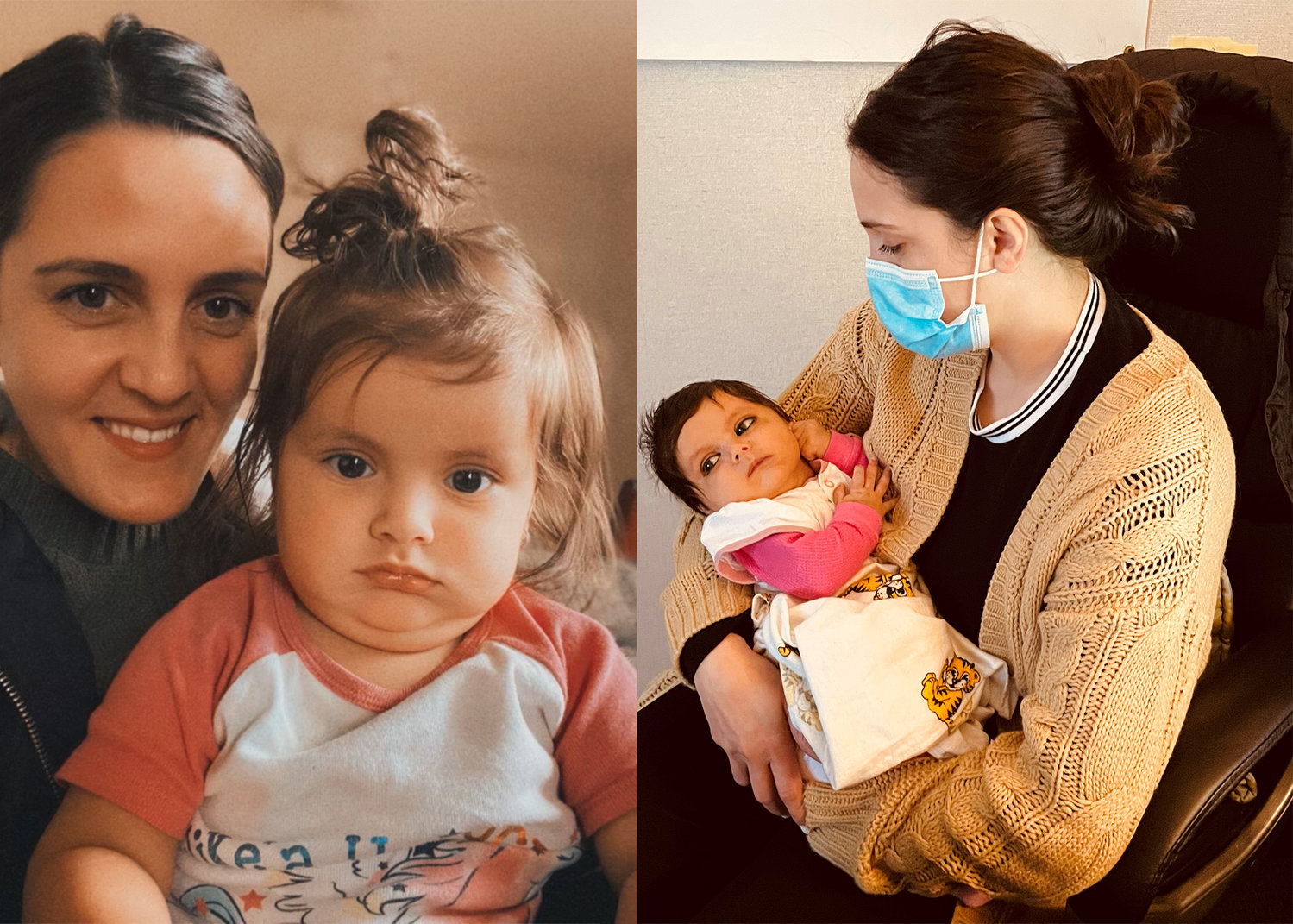Reflecting on resettlement — One year, so many changes
Encounter with Catholic Charities
In August of 2021 the world watched as thousands of Afghans, now fearing for their lives, fled their homes after the fall of Kabul. Just one month later, Catholic Charities of Central and Northern Missouri, the local resettlement agency for mid-Missouri, received the first Afghan evacuees at Columbia Regional Airport. Since then, Catholic Charities has assisted nearly 300 Afghan allies of the U.S. government in rebuilding their lives in Columbia, Fulton, and Jefferson City.
Frishta Aslami, a Supervising Case Manager at Catholic Charities Refugee Services and a native Afghan, has worked to help Afghan newcomers navigate the many challenges of resettlement. This week she reflects on her experience as a case manager during the historic resettlement effort that Operation Allies Welcome presented, and the impact this work has left on the community, her clients and herself.
When I think about the past year, and all the work we have done to resettle so many people in such a historic timeframe, the feeling that rises to the top is maybe unexpected but welcome: relief.
Just a few weeks ago, I drove to the airport to receive an incoming refugee family, not a family from Afghanistan this time, but being in that airport one year after the incredible task of resettling evacuees brought up so many memories for me.
This time last year I was working in our offices late into the nights, rarely making it home before midnight, and with only three days off to rest the entire month.
Every morning our staff would check the spreadsheet from our federal resettlement agency, the United States Conference of Catholic Bishops (USCCB), to see who would be arriving.
We’d get their information written up on the arrivals board — all the while I’m thinking, How are we going to do this? Do we even have the capacity? — but then, we’d begin.
We’d receive our clients at the airport, transport them to our offices with their family to enjoy a warm, familiar meal while we began their paperwork.
Then, we’d take them to their new home and give them a tour and orient them to things as much as we could.
We’d leave them safe, and together, knowing we’d be back the next day and many times over the next several weeks.
The next day, we’d start all over again!
Now I look back, and I think about these people and what they’ve accomplished over the past year, and it feels like a huge and very fruitful change.
I’ve spent the past year watching my clients find their community, adapt to a new culture, even taking trips to visit St. Louis or Chicago — all within their first year of resettling here — they have become self-sufficient in so many ways.
Seeing this growth makes me feel incredibly proud of them and what they have accomplished, and so relieved that many of them are not only settled in but thriving.
For example, one of my clients surprised me a few weeks ago with a phone call to let me know he’d passed his driver’s permit test.
This might seem small at first, but access to personal transportation is a big deal for resettling families.
Driving means transportation to work, to the grocery store, to school for the children.
So, he calls me and tells me he’s passed the test without me even there to translate for him!
He had used our educational materials in Pashto and Dari, reached out to friends to learn how to study using YouTube and other online resources, and waited at the DMV for several days in a row to get into the test.
I can’t even express how happy his call made me. Knowing that this person who has been through so much — has fled their home and is learning so many new things — has now found such independence and self-sufficiency.
Again, I feel that relief.
Then I noticed that while things were changing for my clients, they were also changing for me.
When I first began this work, most people I encountered had no idea where I was from.
But then we began welcoming refugees from Afghanistan and then during conversations, people would start to notice my accent and ask me where I’m from.
When I would tell them I’m from Afghanistan, they would usually say something like, “Did you know we have so many Afghans here now?”
I would smile, and say, yes, and then tell them about the work we do here at Catholic Charities.
Almost every time they say, “oh we are so happy they are here, that they were saved.”
It’s amazing to see that the community here understands the gravity of what these people went through, and they care, they really care about their health and their safety.
These communities are genuinely glad to welcome them, which makes me feel more welcome, too. And again, I feel that relief.
One year after beginning this historic resettlement effort, I would say that I feel more connected to my community than I ever have.
Over the last year I’ve seen communities educate themselves about resettlement and engage with refugees.
I’ve seen their compassion for welcoming others and their dedication to serving their new neighbors.
As people learn more about what we do here as the local resettlement agency, they begin to understand and accept the hardships that many refugees are facing.
I’m so grateful that we are able to do this work, because through this work I’ve seen our community grow into an even more diverse and welcoming place — full of people who are willing to accept newcomers from all over the world — and we’re all better for it.
You can support Frishta’s work with Catholic Charities Refugee Services through the end of this month during our #CoMoGives campaign. Learn more online at cccnmo.diojeffcity.org or at comogives.org by searching for “Catholic Charities Refugee Services.”







